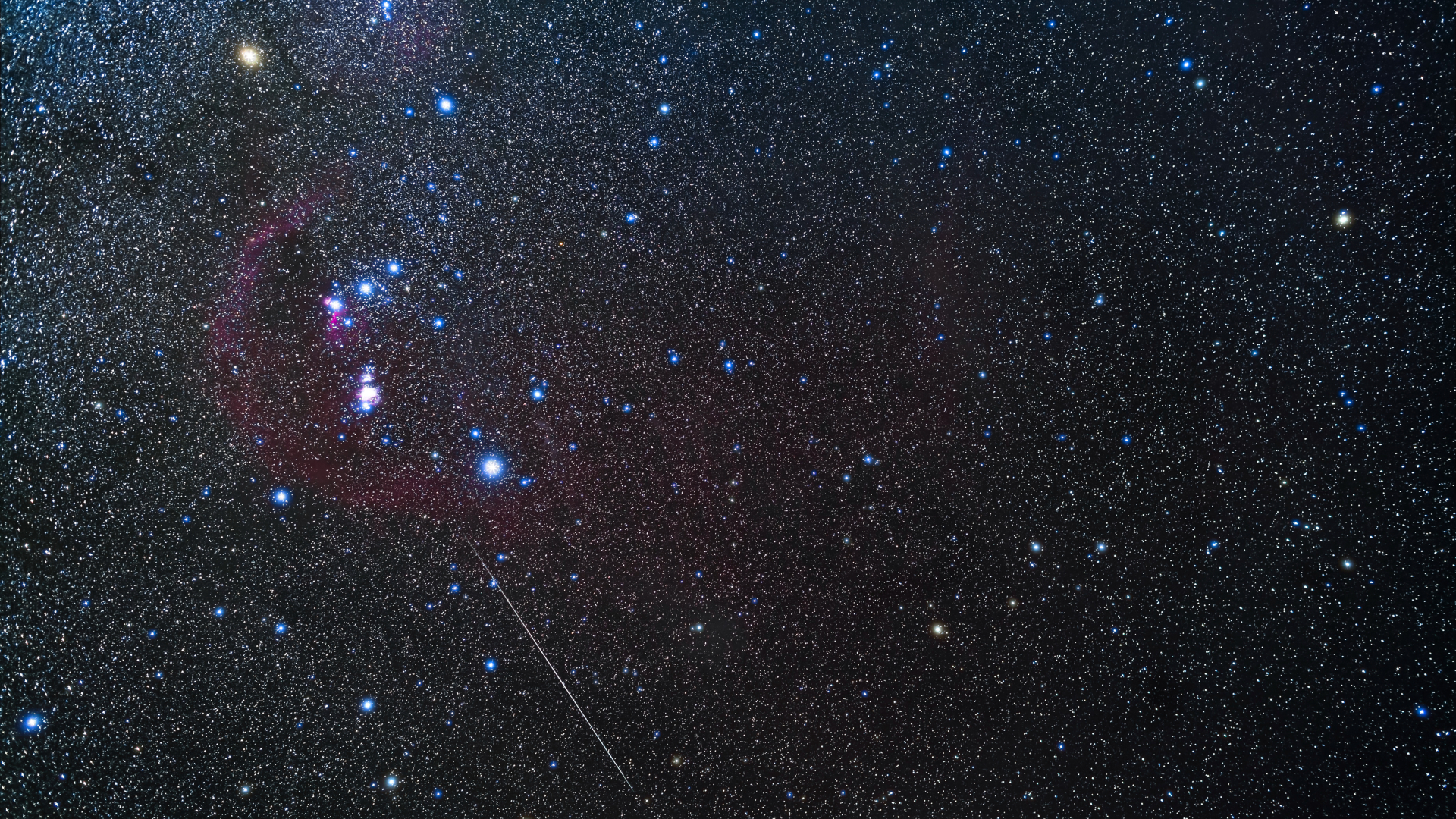Anti-Satellite Test Not a Hostile Act, Chinese Space Official Says
Breaking space news, the latest updates on rocket launches, skywatching events and more!
You are now subscribed
Your newsletter sign-up was successful
Want to add more newsletters?

Delivered daily
Daily Newsletter
Breaking space news, the latest updates on rocket launches, skywatching events and more!

Once a month
Watch This Space
Sign up to our monthly entertainment newsletter to keep up with all our coverage of the latest sci-fi and space movies, tv shows, games and books.

Once a week
Night Sky This Week
Discover this week's must-see night sky events, moon phases, and stunning astrophotos. Sign up for our skywatching newsletter and explore the universe with us!

Twice a month
Strange New Words
Space.com's Sci-Fi Reader's Club. Read a sci-fi short story every month and join a virtual community of fellow science fiction fans!
PARIS -- TheChinese government confirmed Jan. 23 that it had sent amissile to destroy one of its own satellitesbut insisted the test should not be viewed as a hostile act.
In a press briefingin Beijing, Liu Jianchao, spokesman for the Chinese Foreign Ministry,reiterated that China "has never participated and will never participatein any arms race in outer space," Liu said, according to excerpts of hisremarks provided by China's Xinhua News Agency. "This test was notdirected at any country and does not pose a threat to any country."
Liu alsosaid Chinahad informed the United States and Japan of the anti-satellite testafter the fact.
U.S. StateDepartment spokesman Sean McCormack said Jan 22 that the Chinese ForeignMinistry had discussed the anti-satellite test in Beijing with Christopher R.Hill, assistant State Department secretary for East Asian and Pacific affairs,who is on a previously scheduled trip in East Asia.
ButMcCormack said the Chinese have yet to fully explain their intentions inperforming the maneuver, which U.S. officials say occurredJan. 11, when China destroyed a retired weather satellite, which was in itsoperating orbit about 537 miles (865 kilometers) in altitude, with aground-launched missile.
"We'relooking for... a greater understanding of exactly what their intent was, what thespecifics were surrounding this test, as well as any programs they may have toconduct future tests, or any details of the program of which this was apart," McCormack said in a State Department press briefing. "This isdesigned, really, to avoid any sort of misunderstandings not only with theUnited States, but with other countries around the world."
The U.S.Air Force has conducted similar anti-satellite tests in the past, but deputyU.S. State Department spokesman Tom Casey on Jan. 19 said U.S. policyhas changed since the last U.S. anti-satellite demonstration in 1985.
Breaking space news, the latest updates on rocket launches, skywatching events and more!
"Wedon't believe that anyone should be doing these kinds of activities,"Casey said in a press briefing. "Twenty-two years ago, there was a ColdWar between the United States and the Soviet Union. There were a number offactors related to that that dictated quite a different policy on the part ofthe U.S. than exists now.
"Moreimportantly, though, I think you need to look at the development of space inthose past 22 years ... Not only the United States, but countries throughout theworld are dependent on space-based technologies - weather satellites,communications satellites and other devices to be able to conduct modern lifeas we know it. And so the consequences of any kind of activity like this aresignificantly greater now than they were at that time."
- China's Anti-Satellite Test Widely Criticized, U.S. Says No New Treaties Needed
- White House Confirms Chinese Anti-Satellite Weapon Test
- U.S. Defense Report: China Working on Anti-Satellite Systems
- New Bush Space Policy Unveiled, Stresses U.S. Freedom of Action
- Special Report: Emerging China, Engaging China

Charles Q. Choi is a contributing writer for Space.com and Live Science. He covers all things human origins and astronomy as well as physics, animals and general science topics. Charles has a Master of Arts degree from the University of Missouri-Columbia, School of Journalism and a Bachelor of Arts degree from the University of South Florida. Charles has visited every continent on Earth, drinking rancid yak butter tea in Lhasa, snorkeling with sea lions in the Galapagos and even climbing an iceberg in Antarctica. Visit him at http://www.sciwriter.us
